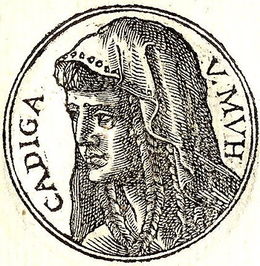Template:Pictorial-Islam-options: Difference between revisions
| [checked revision] | [checked revision] |
mNo edit summary |
mNo edit summary |
||
| Line 1: | Line 1: | ||
<noinclude>Also see: [[Template:Pictorial-Islam]]</noinclude><!-- HELP NOTES: Each option tag handles one random story --><choose> | <noinclude>Also see: [[Template:Pictorial-Islam]]</noinclude><!-- HELP NOTES: Each option tag handles one random story --><choose> | ||
<option weight="1">{{Pictorial-Islam|1=Qur'an and Semen Production (Qur'an 86:7)|2=[[File:Hippocrates.jpg|190px|link=Quran and Semen Production]]|3=This article analyzes the various attempts to show that the Qur'an correctly describes semen production from between the “sulb” and the “tara’ib” in verse 86:7. | |||
There are at least seven distinct classes of explanations, and none of them are supported by modern scientific knowledge and are frequently conflicting. For example, Ibn Kathir refers to tara’ib as a female organ, while other tafsirs claim it belongs to the man. Another conflict is the definition of sulb to mean either the backbone or the ‘hardening’ of the loins. ([[Quran and Semen Production|''read more'']])}}</option> | |||
Revision as of 21:20, 9 February 2014
Also see: Template:Pictorial-Islam
|
